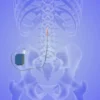Chronic Pain

Chronic Pain Services Offered in San Antonio, TX
Chronic pain affects one in five adults in the United States, and nearly 40% of them struggle with severe pain that prevents them from working and enjoying their favorite activities. The board-certified physicians at Advanced Spine and Pain Center have extensive experience helping adults overcome chronic pain. They substantially reduce discomfort and improve mobility with personalized interventional, medical, and lifestyle therapies. To learn about your treatment options for chronic pain, call one of the three offices in San Antonio, Texas, or book an appointment online today.
Chronic Pain Q&A
What is chronic pain?
Pain develops for many reasons, but no matter the cause, all pain is classified as acute or chronic. Acute pain refers to the discomfort you feel after an injury, surgery, or when you have an illness. This pain should improve and go away as the underlying problem heals.
Chronic pain lasts for at least three months (often much longer). Acute pain can become chronic. You can also have chronic pain and ongoing inflammation due to a health condition.
What health conditions cause chronic pain?
Conditions that frequently lead to chronic pain include:
- Arthritis
- Migraines
- Fibromyalgia
- Lyme disease
- Herniated discs
- Spinal stenosis
- Cancer
- Degenerative disc disease
- Complex regional pain syndrome (CRPS)
- Peripheral neuropathy
Chronic pain often affects people with neurological conditions, such as multiple sclerosis, stroke, and neuromuscular injuries.
When should I seek help for chronic pain?
It’s essential to seek help for chronic pain. Ongoing pain changes your central nervous system, adding to your overall pain by making you more sensitive.
Easing your pain also reduces stress, promotes faster healing, and helps you get the sleep you need to stay healthy and active.
It’s time to schedule an appointment at Advanced Spine and Pain Center when your pain:
- Doesn’t improve or worsens
- Disrupts your daily life and activities
- Limits your mobility
- Affects your ability to sleep
The bottom line is that you should never put off getting help at Advanced Spine and Pain Center, even if earlier treatments didn’t help.
How is chronic pain treated?
Your comprehensive care plan at Advanced Spine and Pain Center may include one or more of the following:
- Medications (anti-inflammatory, muscle relaxants, and others)
- Physical therapy
- Joint injections
- Epidural steroid injections
- Nerve decompression
- Nerve blocks
- Peripheral nerve stimulation
- Spinal cord stimulation
- Radiofrequency ablation
- mild® (minimally invasive lumbar decompression)
- Intracept®
- VIA Disc™ NP
- Kyphoplasty
Though this is a long list, it doesn’t include all the possible interventional procedures available at Advanced Spine and Pain Center. Interventional medicine helps when other options fail because it treats the source of your pain, often targeting the nerves carrying pain messages to your brain.
Your provider may also recommend a multifaceted approach incorporating nutritional counseling, relaxation training, mindfulness-based stress reduction, sleep hygiene, and weight loss.
To learn more about chronic pain management, call the nearest Advanced Spine and Pain Center office or request an appointment online.




